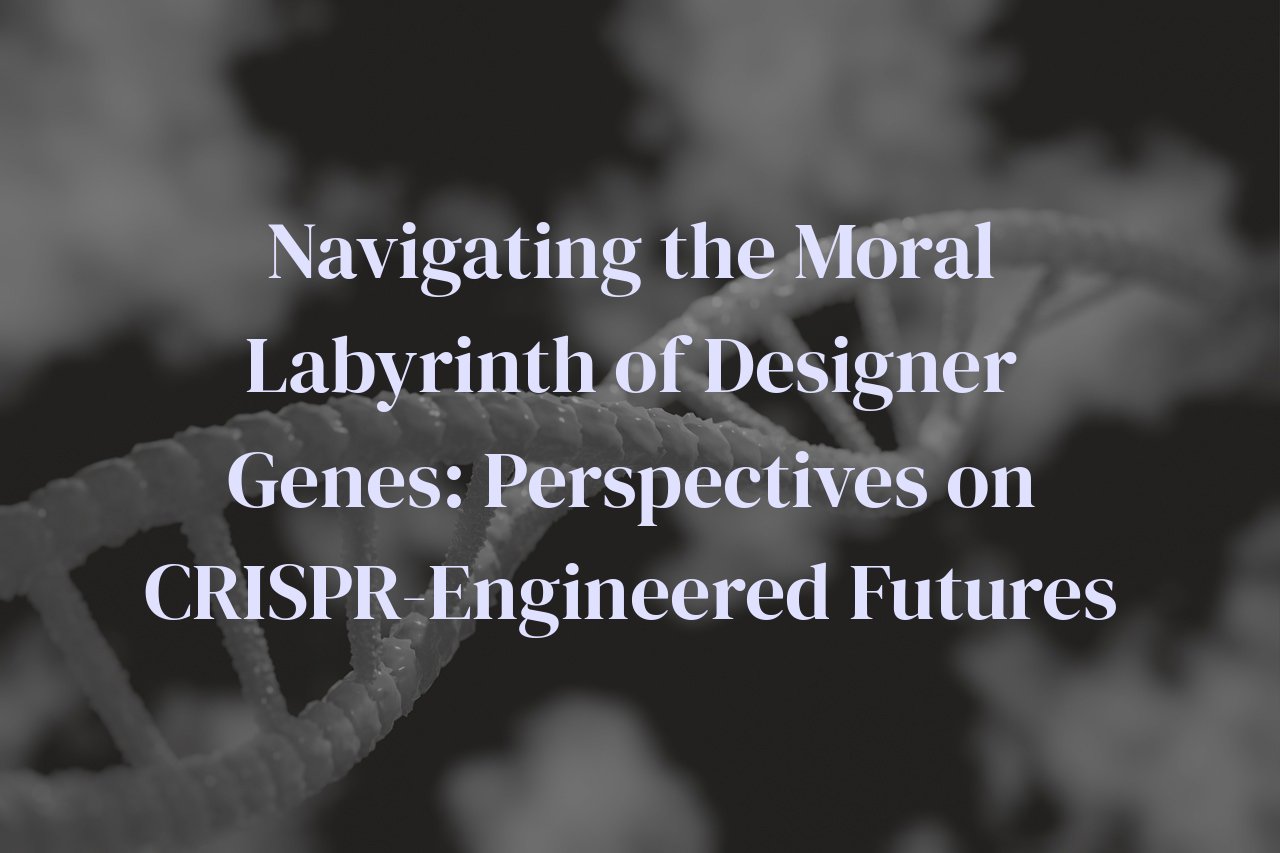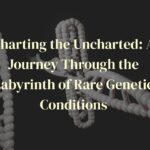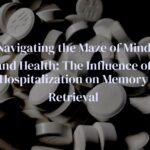
As the frontier of genetic modifications inches closer to our present reality, the implications of CRISPR technology create as much hope as they do controversy. In this deep-dive exploration, we cast a reflective eye over the ethical quandaries that blanket the world of gene editing, especially as it pertains to the possibility—no longer reserved to science fiction—of creating ‘CRISPR babies.’ Here, readers will be exposed to a comprehensive examination of the moral considerations that accompany the power to rewrite human DNA, as well as gain an understanding of CRISPR’s potential implications for our collective future. This post promises to gather insights from industry experts, my professional experiences, and the overarching societal concerns, to construct an articulate narrative on the ethical landscape of gene editing.
Table of Contents
Unpacking CRISPR: The Gateway to Genetic Mastery or Pandora’s Box?
In my journey through the intricate tapestry of medical innovation, I’ve been continually fascinated by the potential of CRISPR-Cas9 technology. This revolutionary tool for gene editing has the unmatched ability to navigate the genome with precision, allowing for the alteration of DNA sequences and the regulation of gene function. The sheer potential it holds for the future of medicine often strikes me as nothing short of miraculous, likening scientists to artisans of the genetic fabric.
However, such power comes laced with profound ethical questions, framing CRISPR as a modern-day equivalent of Pandora’s Box. The dichotomy it presents is staggering: on one hand, the promise of eradicating genetic diseases, personalized medicine, and even enhancing food security; on the other, the fear of unintended consequences, such as off-target effects that could potentially cause harm instead of healing.
My exploration into this domain isn’t limited to academic research or professional debates. I remember sitting with a group of geneticists, their faces a mixture of awe and trepidation, as they discussed the first CRISPR-edited human embryos. There was a sense that we were standing at the precipice of a new era, with each researcher wrestling with the moral implications of ‘playing God’. Could they ensure the safety and well-being of future generations? Was there a line in the sand, and if so, where should it be drawn?
The debate around CRISPR often centers upon its dual-use nature. The technology that could potentially cure genetic disorders like cystic fibrosis or sickle cell anemia could also pave the way for enhancements that slip into eugenics. As I ponder these scenarios, I am both elated by the potential humanitarian breakthroughs and grounded by the weight of responsibility that accompanies them. Unintended ecological disruptions and the ethical implications of altering human germline cells are topics that have kept me up at night, reflecting on the gravity of the decisions that lie on the shoulders of today’s geneticists.
Thus, CRISPR stands as a testament to human ingenuity, yet it also casts a long shadow of ethical ambiguity. In my writings and discussions, I advocate for a balanced understanding of this technology, highlighting the importance of public discourse and responsible governance in navigating this labyrinth. The quest for genetic mastery is not one to be taken lightly, as it has the potential to redefine the core of what it means to be human and how we relate to the natural world around us.
The Possibilities and Perils of Precision: Can We Edit Away Diseases Ethically?
The horizons of medical science have been dramatically expanded with the advent of CRISPR-Cas9 technology, stirring a potent mixture of hope and trepidation within the healthcare community. The precision offered by CRISPR has ignited discussions on the ethical implications of gene editing, particularly as we inch closer to a reality where we can ‘edit away’ hereditary diseases. As a healthcare professional, I’ve been part of poignant conversations where the desperation of patients meets the optimism of science, yet ethical quandaries loom ominously.
Embracing the promise of CRISPR to alleviate human suffering is an endeavor that tugs at the heartstrings. Imagine removing the genetic burden of Huntington’s Disease, or nullifying the BRCA gene mutations associated with breast cancer risk; it’s akin to providing a medical sanctuary for future generations. However, the journey from bench to bedside is strewn with ethical landmines. We’re faced with the challenge of distinguishing between therapeutic applications aimed at preventing disease, and enhancements that could lead to a societal schism between those with access to such technologies and those without.
The perils of precision aren’t solely moral in nature but also biological. Off-target effects, where unintended genetic alterations could occur, present a sobering reality; meddling with the genome is akin to navigating a biological labyrinth with only a partially illuminated map. The fear of inadvertently introducing new ailments while attempting to eradicate old ones is palpable in the corridors of medical institutions. There’s an implicit understanding that despite our advancements, we are still apprentices in the workshop of genetic manipulation.
Moral quandaries further unravel when we consider the potential of CRISPR to reshape the very fabric of our biology for non-therapeutic purposes. On numerous occasions, I’ve witnessed the enthusiasm in colleagues’ voices wane into concern as the conversation shifts from curing the incurable to the ethics of ‘designer babies.’ These discussions often cycle back to a central, piercing question: How far are we willing to go in pursuit of perfection, and at what cost to our collective humanity?
Our ethical compass must be firmly set when navigating the prospects of genetic editing. As a healthcare advocate, I’ve argued for the formulation of strict guidelines that balance the benefits of gene editing against the moral and societal implications. This includes establishing clear boundaries for CRISPR use and constantly engaging in public dialogue to ensure the diversity of voices and opinions are heard, especially those of patients and their families who live with the specter of genetic diseases. Only by fostering a culture of ethical scrutiny and dialogue can we hope to ethically edit away diseases with CRISPR.
The Specter of Designer Babies: Ethical Concerns in Crafting Perfect Humans
The very notion of ‘designer babies’ conjures up a vivid spectrum of utopian ideals and dystopian fears. As a health blogger, I’ve had the unique opportunity to engage with a wide array of perspectives on this subject, ranging from optimistic geneticists to deeply concerned ethicists. At the heart of the debate lies a crucial ethical quandary: if we possess the tools to erase genetic defects, where do we draw the line between therapeutic intervention and aesthetic preference?
The moral implications of tailoring the human genome are profound and unsettling. I recall a poignant conversation with a parent of a child with a genetic disorder, whose tempered hope for a cure was shadowed by fears of a society valuing genetic ‘normalcy’ above diversity. This is the ethical friction point where hopes for eliminating suffering interweave with the acceptance of every human’s innate worth, regardless of their genetic makeup.
As we edge closer to the reality where selecting eye color, height, or intelligence becomes a menu of options for prospective parents, the specter of eugenics looms large. It is a painful echo of a not-so-distant past where the pursuit of a perceived genetic perfection led to atrocities against humanity. The chilling thought that such capabilities could be commodified, creating a market for ‘enhanced’ humans, underscores the need for a robust ethical framework sensitive to the historical context of genetic manipulation.
Another layer of ethical considerations emerges when discussing the meritocracy of a society with genetically modified individuals. If only the wealthy can afford designer enhancements, we risk entrenching a genetic underclass, further exacerbating the socio-economic divide. Can we reconcile the lofty goal of disease eradication with the potential creation of a genetically-tiered society? These questions require us not only to look at the facts but also to listen to the stories and fears that accompany the human condition.
Throughout my blogging journey, I’ve seen how our collective values are challenged by the rapid advancements in genetic engineering. The discourse around designer babies is not just about the capabilities of CRISPR but about the soul of our society. Who are we, and who do we aspire to be? As we navigate this moral labyrinth, let’s hold on to the thread of compassion, ensuring that our pursuit of ‘perfect’ does not unravel the beautifully imperfect tapestry of human diversity.
The Unequal Access Dilemma: Gene Editing and the Socio-Economic Divide
Through my lens as a healthcare blogger, I’ve grappled with the ethical conundrums thrown into sharp relief by the dawning era of CRISPR. Among the most complex is the concern surrounding unequal access to gene-editing technologies. The prospect of a society split by genetic haves and have-nots is not merely speculative fiction but a tangible risk we face today. This divide bears the potential to deepen existing inequalities, rendering the rich healthier and potentially transcending the limitations that bind the rest of humanity.
I recall an oncologist friend once whispering to me in hushed tones, ‘We’re on the brink of greatness, but who will pay the toll?’ The cost of gene-editing treatments—likely exorbitant in early stages—poses a significant barrier to universal access. Consequently, the wealthy may readily purge their lineage of hereditary diseases, while those less fortunate grapple with the raw hand dealt by nature. Such disparities can lead to a stratified society, not solely in terms of wealth but also in health, lifespan, and cognitive abilities.
The ramifications reach beyond direct healthcare implications, weaving into the socio-economic fabric. A child free from the worry of certain inherited conditions, thanks to the financial prowess of their ancestors, may navigate life’s challenges with privileges others can’t fathom. Meanwhile, classmates less privileged may contend with what could have been preventable maladies. We must ask ourselves: are we prepared to witness a society where one’s future is so starkly determined by the depth of their parents’ pockets?
As we traverse the thorny path of progress, it becomes imperative to ponder not only the scientific possibilities but the societal implications that follow. Should these life-altering technologies become commoditized, how will we safeguard fairness? The quest for answers must be relentless, involving not just scientists and ethicists, but society at large, to ensure the keys to our genetic destinies benefit all humankind, irrespective of socio-economic standing.
Translating these reflections into tangible steps, it is essential to foster policies and initiatives that ensure equitable access to gene-editing treatments. Perhaps sliding scale prices, subsidies, and international collaborations could form part of a multi-faceted solution, eschewing a future where genetics exacerbate the chasm between rich and poor. It is not simply a matter of medicine or technology, but one of profound moral contemplation that tethers us all to the collective human condition.
Regulating the New Frontier: Developing an Ethical Framework for Gene Editing
The emergence of CRISPR as a tool for gene editing has thrust us into a new era of biological possibility, one where the very building blocks of life can be reordered to our preference. As someone deeply entrenched in the crossroads of medicine and morality, I’ve borne witness to the tremulous excitement and profound anxiety that accompanies such a powerful technology. How do we navigate this brave new world with the compassion and prudence it demands?
Establishing an ethical framework for gene editing is not just advisable; it’s essential. The intricacies of such a framework must be woven with careful hands, drawing upon the collaborative insights of ethicists, scientists, policymakers, and the public at large. A cornerstone of this ethical lattice is the emphasis on transparency. Every edit, every modification, must be documented and subjected to rigorous peer-review, ensuring that the practice avoids the shadows and operates within the beam of public scrutiny.
Advocacy for responsible usage forms the next thread of the framework. Gene editing must be wielded not as a tool for human perfection, but as a scalpel against suffering, targeting genetically linked diseases with precision while carefully sidestepping the all-too-human lure of enhancement for advantage rather than therapy. Through my interactions with genetic counsellors, I’ve appreciated the weight of decision that comes with altering one’s genetic destiny, and this gravity must guide our application of CRISPR.
Accessibility is a pillar that cannot be overlooked. This framework must demand that the benefits of gene editing are available to all strata of society, not just the affluent. In my experience, the universality of healthcare is already a contentious issue; gene editing could exacerbate or ameliorate these disparities, depending on our collective ethical compass. Policies must be crafted to ensure egalitarian access, informed consent, and respect for the individual’s autonomy.
Finally, an international consortium is imperative for maintaining a global standard. During conferences, I’ve seen the potential of gene editing bring together the brightest minds, regardless of national borders. This same collectivism is required to engender uniformity in how we approach this powerful technology. A global treaty on gene editing, akin to the conventions on chemical weapons or climate change, could provide the checks and balances necessary to prevent abuse and encourage beneficial advances.
Constructing this ethical edifice will be the task of our generation, determining the trajectories of many that follow. It’s a challenge that fills me with hope and trepidation, as I look forward to contributing to a narrative that treads cautiously, yet optimistically, into the engineered future. In the wise words I’ve heard spoken in hallowed halls, ‘With great power comes great responsibility.’ This adage has never been more pertinent than it is in the unfolding saga of CRISPR and humanity’s quest to master our genetic destinies.
Conclusion
In closing, gene editing through CRISPR technology remains a Pandora’s box of ethical dilemmas, ripe with both groundbreaking potential and profound moral consequences. As society grapples with the implications of designer genetics, it is imperative we tread cautiously, balancing innovation with the innate value of human diversity. The future may be written in our genes, but it is the ethical codes in which we must deeply invest. Whatever path we choose, the dialogue we foster today will shape the genetic canvas of tomorrow—hopefully, for the greater good of all humanity.



